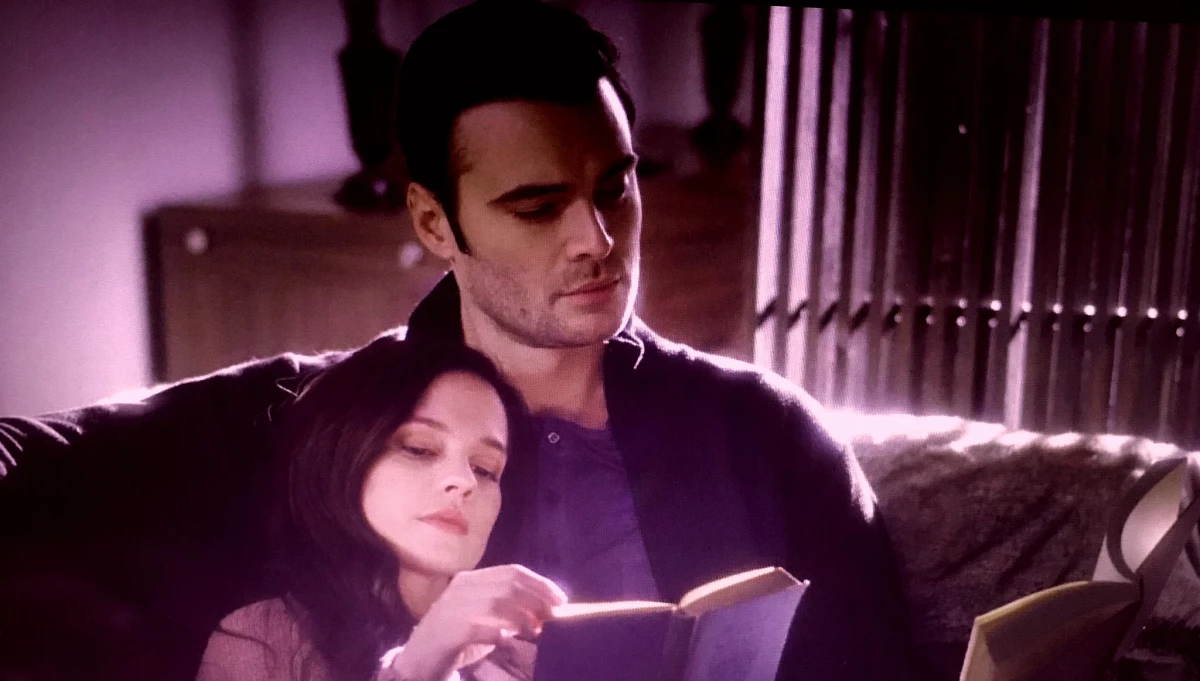Gabriel’s Inferno (2020)

Gabriel’s Inferno (2020), directed by Tosca Musk, is an emotionally charged romantic drama that explores the complexities of love, redemption, and personal growth. Based on the bestselling book series by Sylvain Reynard, the film takes place in the intellectual world of academia, where a profound yet troubled love story unfolds between Gabriel Emerson, a distinguished but emotionally scarred professor, and Julia Mitchell, a shy and reserved graduate student. Their evolving relationship serves as the heart of the film, highlighting the themes of healing and self-discovery as the characters confront their pasts and learn to trust each other.
At the beginning of the film, we meet Gabriel Emerson, a brilliant but deeply flawed professor. Gabriel’s intellectual achievements are overshadowed by a tumultuous past filled with regret and guilt, which manifests in his troubled relationships with others. Despite his brilliance, Gabriel is emotionally closed off, carrying the scars of his past mistakes. His personal demons are made even more evident as he crosses paths with Julia Mitchell, a graduate student who is both his student and, unbeknownst to him, a person who will challenge his emotional defenses. Gabriel is initially distant and aloof, but beneath his icy exterior lies a man who is capable of deep emotions, if only he can face the truth about himself.
Julia, on the other hand, is portrayed as a reserved and intelligent woman who is hiding her own emotional baggage. She is insecure, unsure of herself, and caught in the shadows of her past experiences. As a graduate student, she is academically gifted but feels like an outsider in the intimidating world of academia, particularly when she encounters Gabriel, who becomes her professor. Despite her initial fear and hesitation, Julia’s intellectual curiosity and passion for learning push her to engage with Gabriel on a deeper level. As their relationship develops, Julia begins to see beyond Gabriel’s tough exterior and recognizes the vulnerability and pain he hides within. Her ability to empathize with him gradually leads to a bond that transcends their professional and emotional boundaries.
The chemistry between Gabriel and Julia is undeniable, creating an intense emotional and intellectual connection that drives the film’s narrative. Their relationship is a complex dance of attraction, tension, and mutual respect, despite the differences in their personalities and backgrounds. Gabriel’s arrogance and emotional baggage are often at odds with Julia’s more introverted and gentle nature, but this contrast only serves to deepen their connection. As Gabriel begins to let his guard down and confront the darkness of his past, Julia becomes his anchor, providing him with the support and understanding he needs to heal. Conversely, Gabriel’s intellectual insights and emotional depth challenge Julia to grow, pushing her to confront her own fears and insecurities.

Throughout the film, the theme of healing is explored with great sensitivity. Gabriel’s emotional scars, stemming from past mistakes and regrets, serve as a central theme. As he opens up to Julia, he begins a journey of self-redemption, seeking to make amends for the wrongs he has committed in the past. This process is not easy, and the road to healing is fraught with obstacles. Yet, Julia’s presence in his life offers him the possibility of growth, forgiveness, and, ultimately, redemption. Their relationship becomes a mirror of their individual healing processes, where love becomes not only a source of comfort but also a catalyst for transformation. For Julia, Gabriel represents both a challenge and an opportunity to confront her own fears and embrace her worth. As they grow closer, their bond deepens, revealing the potential for both personal and relational healing.

The setting of Gabriel’s Inferno plays a pivotal role in reinforcing the emotional depth of the story. The academic environment, with its intellectual rigor and historical charm, provides the perfect backdrop for the characters’ evolving relationship. The film’s visuals, including its beautiful cinematography, create a sense of intimacy and longing that mirrors the emotional intensity between Gabriel and Julia. The locations—such as university halls, elegant libraries, and picturesque outdoor scenes—serve as symbolic spaces where the characters experience moments of reflection, conflict, and connection. This setting emphasizes the film’s themes of intellectual growth, emotional depth, and the transformative power of love.

In conclusion, Gabriel’s Inferno is a captivating romantic drama that explores the intricacies of love, healing, and redemption. With its complex characters, emotional depth, and evocative setting, the film offers a compelling narrative about two individuals whose connection helps them confront their pasts and evolve into better versions of themselves. Through Gabriel and Julia’s relationship, the film reminds us that love has the power to heal deep wounds and that redemption often begins with the courage to open one’s heart. Gabriel’s Inferno is a testament to the strength of the human spirit and the transformative power of love, making it a truly unforgettable cinematic experience.











